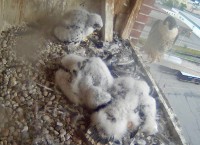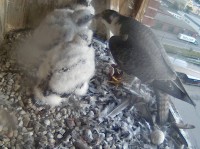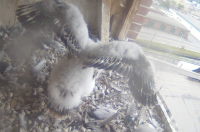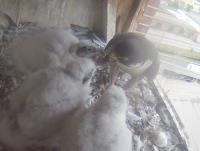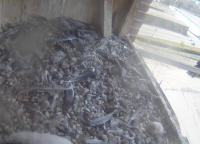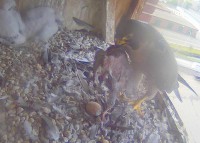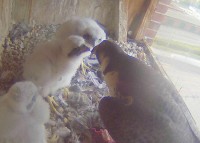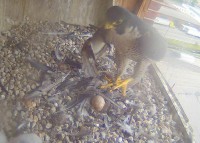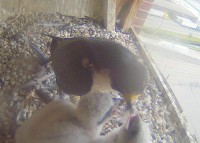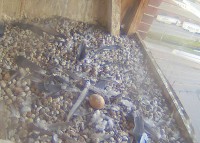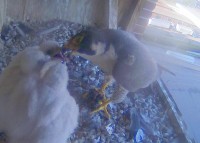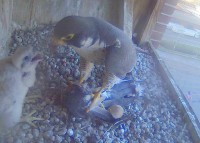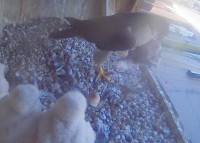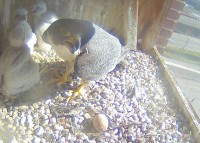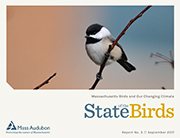Day 26: leg bands today!
June 8, 2018 in In the Nest Box, lawrence peregrines, Peregrine Falcons Eastern Massachusetts, Peregrine Falcons Massachusetts
Sunrise time this morning was at 5:07 AM. The peregrines started off the day under clear skies, bright sun, light wind, and temp at 57F. The day ahead calls for mostly sunny skies, with a high near 80. West wind 7 to 10 mph.
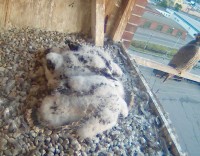 Research has shown that male peregrines frequently cached food, both when feeding the female during incubation, and when feeding her and the nestlings later. Both sexes use these food stores and up to 35% of food items may come from nearby cache locations. Half-eaten items may be returned to the cache for a further meal. This photo shows the chicks in a huddle with female on the perch.
Research has shown that male peregrines frequently cached food, both when feeding the female during incubation, and when feeding her and the nestlings later. Both sexes use these food stores and up to 35% of food items may come from nearby cache locations. Half-eaten items may be returned to the cache for a further meal. This photo shows the chicks in a huddle with female on the perch.
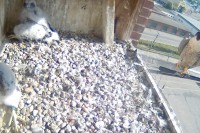 At day 26, the development continues in terms of the increasing covering of juvenile feathers on the breast. The area on the head bare of down also continues to expand. Today was banding day. In this photo, you’ll notice the chick in the foreground has a new leg band. More details on the banding to follow!
At day 26, the development continues in terms of the increasing covering of juvenile feathers on the breast. The area on the head bare of down also continues to expand. Today was banding day. In this photo, you’ll notice the chick in the foreground has a new leg band. More details on the banding to follow!
Literature cited:
Ratcliffe, D. 1993. The Peregrine Falcon. 2nd ed. Carlton, England: T. and A. D. Poyser.
The Canadian Peregrine Foundation, Peregrine Falcon Development – Age Guide; http://www.peregrine-foundation.ca/info/ageguide.html
